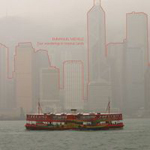|
|
 |
Dusted Reviews
Artist: Emmanuel Mieville Album: Four Wanderings in Tropical Lands Label: Baskaru Review date: Jan. 4, 2012 |

|
|
|
 |
The locales in which Emmanuel Mieville recorded Four Wanderings in Tropical Lands are all real places, but the sound environments found on the disc’s four tracks exist only as a product of Mieville’s mind. Rather than opt for a wholly faithful representation of his far-flung destinations, Mieville layers and arranges his material, building a composite ambience of each spot. It’s an emphasis on aesthetics over accuracy that marks the album’s quartet of aural fictions, a bending of the truth not unlike the way a biopic might fudge a few facts for dramatic effect. Mieville isn’t especially forthcoming about where how he’s bent the truth in his notes for the album, and the mystery is part of why Four Wanderings in Tropical Lands is a trip worth taking.
Each of the four tracks is titled after the place (or, in the case of “Tarapoto Peru/Kuantan, Malaysia,” the places) in which its source material was recorded, but save for his geographic exactitude, Mieville isn’t wont to offer much in the way of explanation or documentation. We get some information — Salumn Donas made the metal and wood sculptures heard on “Cahuita, Costa Rica,” and Yann Van Steenbrugghe made some of the recordings that feed into the aforementioned Peruvian/Malaysian mash-up. We’re more often left in the dark: Mieville doesn’t meticulously relate who and what we’re hearing, and he omits entirely the anthropological and geographical background that other, more documentation-minded recorders might offer. Mieville’s atmospheric renderings are dream-like trips that are more about the traveler’s impressions of a place than the actual spot itself.
Sometimes, Mieville’s manipulation is obvious. The sculptures he plays on the second track, and the occasional electronics that crop up from time to time are both conspicuous injections of the artist into the soundscapes that he assembles. More often, though, Mieville does things more subtly. Layers of sound aren’t matched in showy collisions, and even “Tarapoto, Peru/Kuantan, Malaysia,” which amalgamates sounds from places 12,000 miles apart, doesn’t openly betray its mixed origins. Mieville’s use of field recording tropes mines some familiar noises: insects abound, birds twitter nearby, and rain falls gently. The sounds of humans or of human creations are sometimes only a little less ordinary. Traffic zooms by in the background of “Repulse Bay, Hong Kong,” metal of unknown origin clatters throughout “Escasu, San José, Costa Rica,” and distant voices underpin “Tarapoto, Peru/Kuantan, Malaysia.” “Kuala Lumpur, Malaysia” features the most directly human (not to mention musical) part of the album, a crooning male voice, though even this is shaded in uncertainty. What we’re hearing sounds like a call to prayer, but such details matter less to Mieville than the greater intermingling of the man-made and natural, and, as with the rest of the sounds on the album, even this singing is included without explicit cultural import. It’s simply another sound, one more bit of sensory input that Mieville heard along the way.
It’s curious that the album’s track titles often include cities, because Four Wanderings in Tropical Lands usually sounds remote. Mieville seems adept at searching out those quiet, secluded spots in which one can escape the urban din, allowing people to encroach on his natural surroundings only when desired. One could say that Mieville’s attention is on the sound made by people set against the context of their natural surroundings, but I’d aver that this is an album that’s more about a single human and the way they hear the world. Four Wanderings in Tropical Lands is a personal album, even if we never hear Mieville directly, and a more complexly rewarding travelogue than those slides your grandparents made you sit through so many years ago.
By Adam Strohm
|







